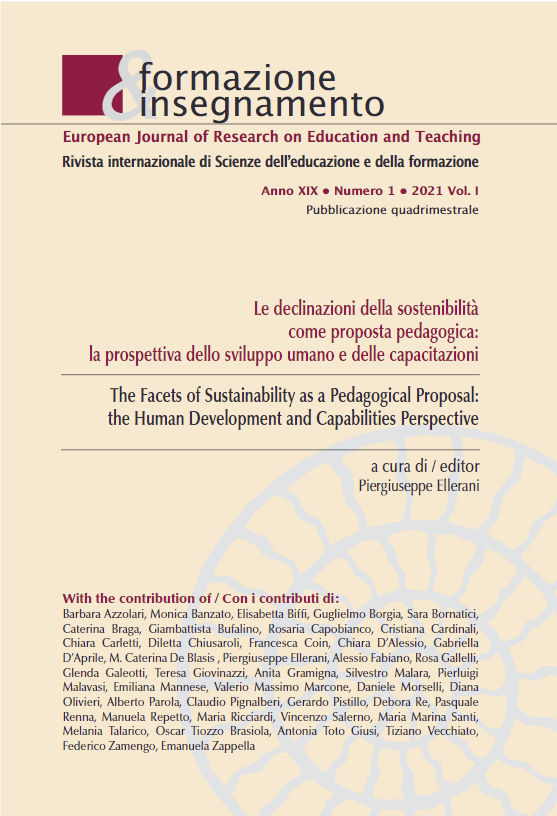Promuovere la salute e il benessere dei soggetti immigrati in Europa: prospettive pedagogiche e didattiche trasformative. Il caso del Progetto Erasmus + “APELE. Accreditation of Prior Experiential Learning Experiences”
DOI:
https://doi.org/10.7346/-fei-XIX-01-21_09Resumen
Il presente contributo si propone di tratteggiare, nelle sue linee fondamentali, la valenza pedagogica del Portfolio delle competenze in quanto strumento di promozione della dignità e del benessere individuale e sociale dei migranti in Europa e, nella fattispecie della presente trattazione, in Italia. Sarà presentato, in tale contesto, un Progetto di ricerca, tutt’ora in fase di svolgimento, in cui è coinvolta l’Università di Bari assieme alle Università di Akureyri (Islanda), Copenhagen (Danimarca) e Patrasso (Grecia), dal titolo “APELE – Accreditation of Experiential Learning Experiences”. Mediante tale Progetto si intende rispondere a importanti quesiti di ricerca tra cui: come cambiano i processi di formazione continua nel tempo delle migrazioni mediterranee? Come cambia la formazione scolastica e professionale per gli immigrati che giungono in Italia privi della possibilità di dimostrare la loro pregressa formazione scolastica e lavorativa? Come cambia l’educazione alla cittadinanza in una logica di prossimità verso i migranti, con i loro fondamentali diritti al- l’Istruzione e alla Salute? Come formare, nell’Europa delle migrazioni, al dialogo interculturale e alla cittadinanza planetaria?
Descargas
Publicado
Cómo citar
Número
Sección
Licencia
Derechos de autor 2021 Pensa MultiMedia

Esta obra está bajo una licencia internacional Creative Commons Atribución 4.0.
Formazione & insegnamento se distribuye bajo la licencia Atribución 4.0 Internacional (CC BY 4.0).
Para más detalles, por favor refiérase a nuestra Política de Repositorio y Archivo, así como a nuestros Términos de Derechos de Autor y Licencia.





